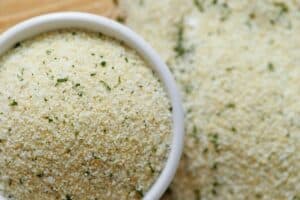Is there a substitute for juniper berries?
First, let’s look at what they are and their use. Juniper berries are female seed cones of the juniper plant (Juniperus communis). These berries have several culinary and medicinal benefits, but they’re primarily used to spice or add flavor to food.
Other uses include smoking meat, making beverages such as tea or juice, flavored spirits, and the manufacture of essential oils.
Adding a small amount of the berries to your cooking gives a tart, peppery flavor, and woody aroma that can quickly grow on you. But what happens if, in the middle of your dinner preparation, you realize you’ve run out of this spice, or you can’t find it at your local store?
Don’t worry. Below are five readily available juniper berry substitutes:
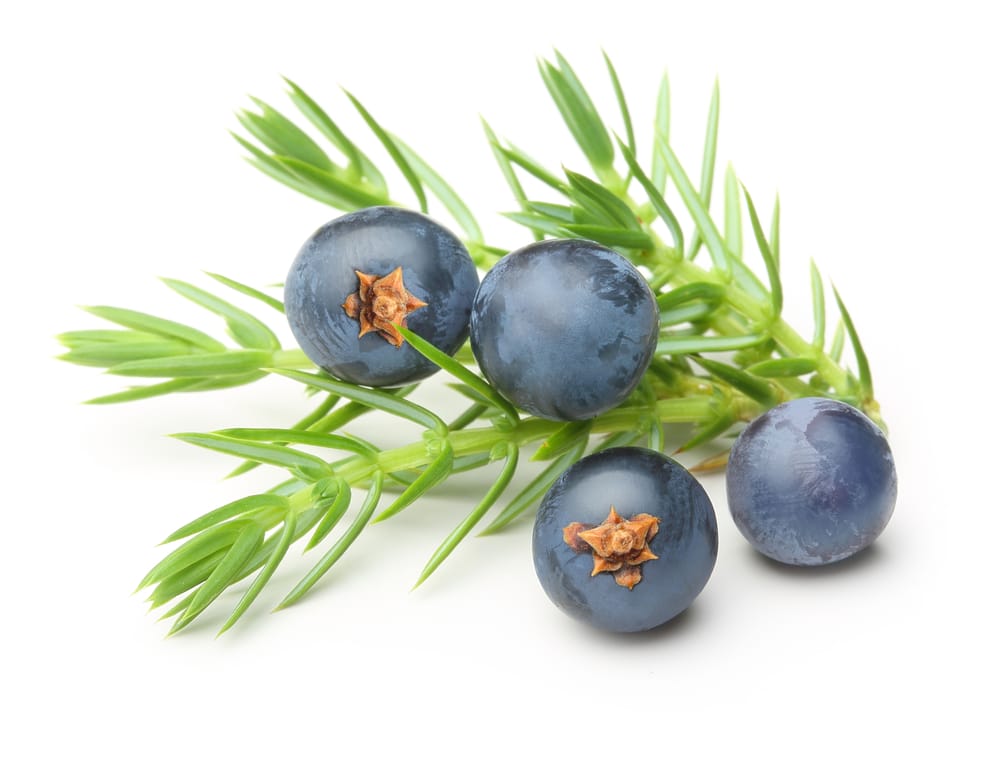
Top 5 Juniper Berry Substitute
The best substitutes for Juniper Berry are Gin, Rosemary and Bay Leaves. Caraway Seeds and Cardamom are also good juniper berry alternatives.
1. Gin

Believe it or not, gin is a distilled alcoholic beverage whose principal flavor is obtained from juniper berries. It’s, in fact, safe to say that juniper berries define gin. It is the most suitable substitute for juniper berry in your recipe. The term gin originated from the French word genievre.
When planning to use gin as a substitute, ensure you choose one of the best brands. You could go for Tanqueray, Beefeater, Hendrick, or Sipsmith’s gin as these are authentic juniper gins. Without a doubt, these are going to help you derive the flavor and essence of juniper berries.
Are you worried about your food tasting of alcohol?
Well, don’t. The alcohol in gin generally evaporates during the cooking process, leaving only the juniper berries flavor.
However, you want to use a quantity proportional to your cooking. Similarly, you can increase or reduce the amount of gin you use to match your desired taste. A local chef recommended replacing two teaspoons of juniper berries with a teaspoon of gin, which worked perfectly.
Adding a few herbs or spices is a perfect way to boost the dish’s aroma a little bit.
2. Rosemary

The herbal and earthy flavor of rosemary makes it a suitable juniper berry substitute.
Rosemary is a fragrant herb of the mint family Lamiaceae. Along with lavender, basil, thyme, and oregano, it’s native to Mediterranean regions.
When fresh rosemary sprigs are dried or powdered, the extracts make an excellent condiment in various red meat dishes requiring marinating.
You may opt to use it in the marinating process or cook it directly with your food. The latter is more appropriate as it would release rosemary’s tasteful flavor in your dishes, resulting in a delightful dish. Besides, it gives your food a distinct aroma.
Rosemary is perfect for pan-seared foods such as steak. With a three-inch-long sprig of rosemary, you can replace four juniper berries.
Interestingly, rosemary also has health benefits. It’s great for aiding digestion, the brain, circulatory system, as well as hair health.
This Mediterranean spice herb will undoubtedly do the trick and provide an excellent substitute for the juniper berries pine-like flavor.
Related Article: The Best Substitutes For Sage Herb
3. Bay leaves
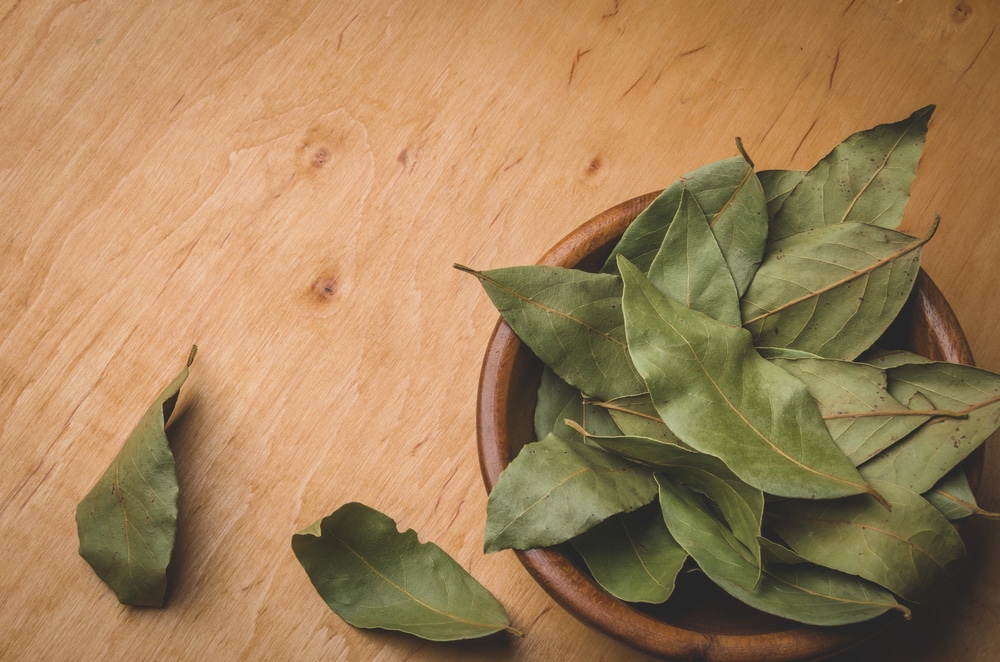
Bay leaves, or laurel leaves, are a product of the Laurus Nobilis tree. Other varieties include the California bay leaf, the Indonesia bay leaf, the Mexican bay leaf, the Indonesian and West Indian bay leaf.
Within the Mediterranean region as well as its borders is where you’ll mostly find this evergreen tree.
Bay leaf is a common spice that is either used in whole or in ground form. You can use it in various dishes, including marinating meat, fish, stew, and vegetable recipes. The leaf has a delicate aroma and what’s great about it is it never overpowers the taste of your meal.
Bay leaves have various health benefits. For example, they’re rich in Vitamin C, a most powerful antioxidant that helps eliminate toxic free radicals from the body. They also contain Vitamin A, magnesium, potassium, calcium, and iron.
Of course, the bitter taste of bay leaf is reminiscent of juniper berries’ flavor in your cooking. One or two crushed bay leaves are enough as a substitute for four juniper berries.
In the spice section of most grocery stores and supermarkets, you’ll typically find whole bay leaves, although they may also be available in crumbled, dried, powdered, or grounded form.
Another option is to use a combination of bay leaf and caraway seeds to flavor your food, as many people do.
Related Article: Best Substitutes for Lemongrass
4. Caraway Seeds
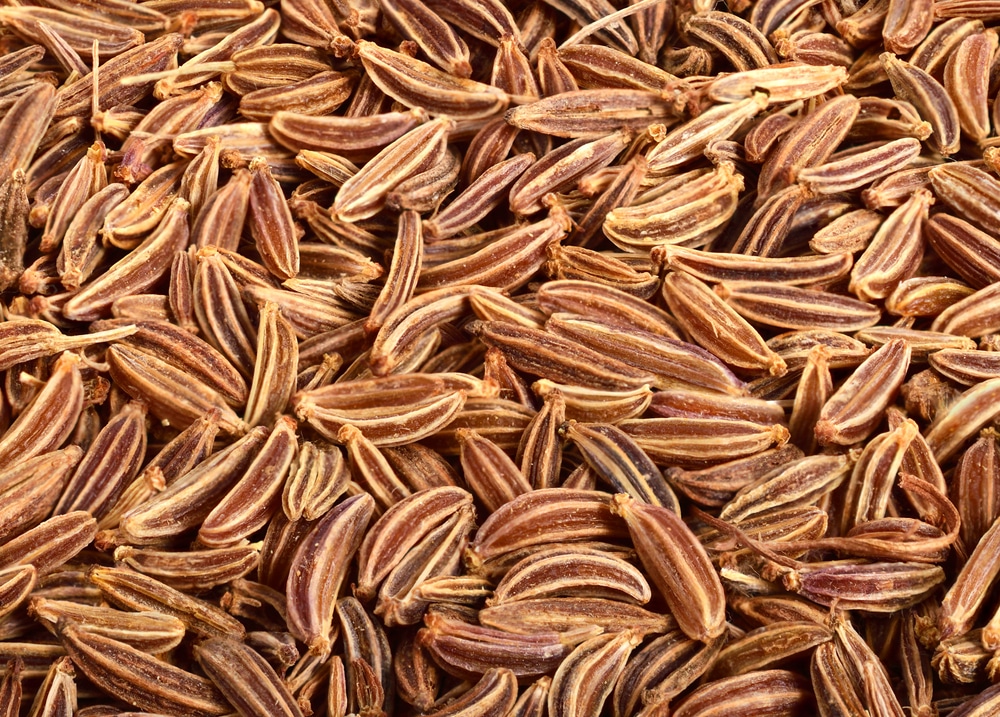
Caraway seeds (Carum Carvi) are intensely aromatic spice belonging to the Umbelliferae family and are a great replacement for juniper berries. Other herbs belonging to this family include fennel, cumin, anise, and dill spices.
They are similar in appearance to other members of the carrot family.
These aromatic seeds give your dishes a warm, peppery, and slightly sweet flavor. Caraway seeds’ main component is natural essential oils, which are the primary reason for the spice’s unique taste.
In European and Mediterranean culinary, Caraway seeds are extensively used. With these seeds, you can cook various savory dishes such as vegetable soups, sauerkraut, sausage, and meat preparations.
Chefs recommend using a teaspoon of caraway seeds in place of two juniper berries. You may also add one or more bay leaves depending on the aroma you want your food to have.
By altering the number of ingredients, you adjust the aroma and flavor to improve the texture and taste.
5. Cardamom
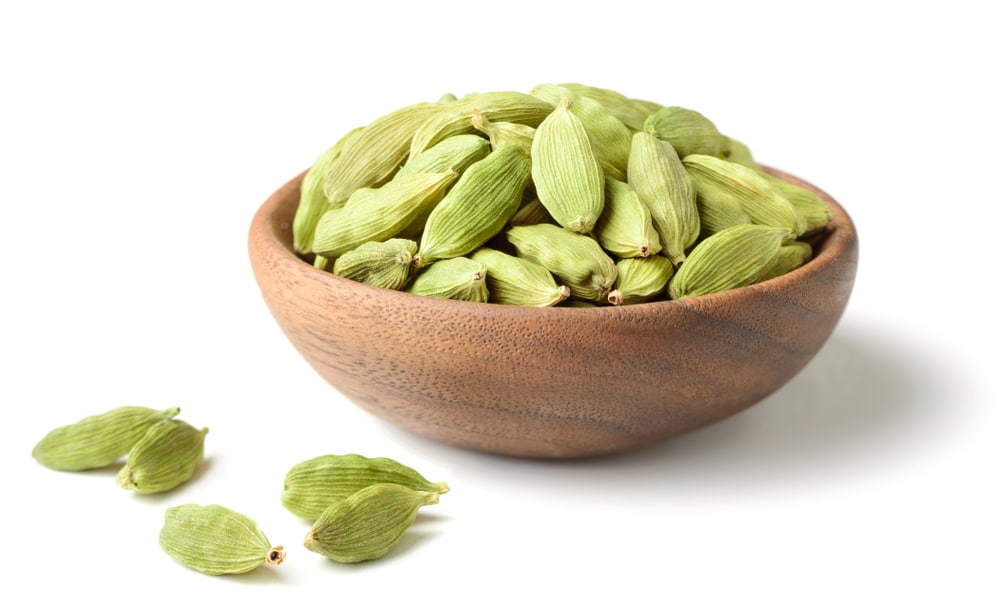
Cardamom spice is obtained from seeding pods belonging to Amomum or Elettaria species. The pods are spindle-shaped and have a triangular cross-section.
The two main types of cardamom are black cardamom and green cardamom. There’s also white cardamom, a bleached version of green cardamom.
Green cardamom is also known as true cardamom. It is the most common variety, and you’ll no doubt find it at your local store. It is intensely aromatic, and you can also use it to make many desserts and savory dishes.
Its bleached form, white cardamom, has less flavor.
Black cardamom, on the other hand, has larger dark brown pods. With its smoky element, it’s more desirable for use in savory dishes, although you can also use it in sweet dishes.
The Cardamom plant is native to Indonesia and India. To get s spice, you’ll have to dig deeper into your pockets since it’s costlier, ranking as the third most expensive spice after saffron and vanilla.
The spice pods in whole or ground form give your vegetable and meat dishes a sweet, pine-like, and mildly bitter flavor for a tantalizing meal.
Take Away
Now you know you need not worry if you’ve run out of your favorite spice, there are many juniper berries substitutes. Gin, rosemary, bay leaves, caraway seeds, and cardamom provide an excellent juniper berry substitute.
What’s great about these substitutes for juniper berries is how easily available they are. Most of them you can find in the spice section of your local store. So go ahead and use these ingredients to replace the tart taste and earthy flavor of juniper berries in your cooling.





